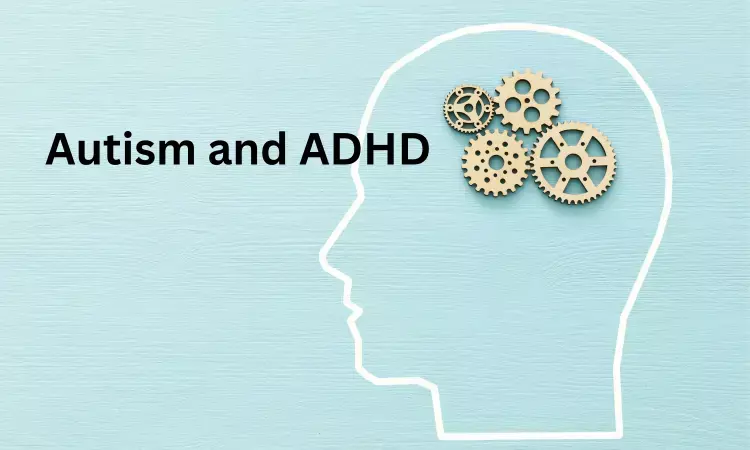- Home
- Medical news & Guidelines
- Anesthesiology
- Cardiology and CTVS
- Critical Care
- Dentistry
- Dermatology
- Diabetes and Endocrinology
- ENT
- Gastroenterology
- Medicine
- Nephrology
- Neurology
- Obstretics-Gynaecology
- Oncology
- Ophthalmology
- Orthopaedics
- Pediatrics-Neonatology
- Psychiatry
- Pulmonology
- Radiology
- Surgery
- Urology
- Laboratory Medicine
- Diet
- Nursing
- Paramedical
- Physiotherapy
- Health news
- Fact Check
- Bone Health Fact Check
- Brain Health Fact Check
- Cancer Related Fact Check
- Child Care Fact Check
- Dental and oral health fact check
- Diabetes and metabolic health fact check
- Diet and Nutrition Fact Check
- Eye and ENT Care Fact Check
- Fitness fact check
- Gut health fact check
- Heart health fact check
- Kidney health fact check
- Medical education fact check
- Men's health fact check
- Respiratory fact check
- Skin and hair care fact check
- Vaccine and Immunization fact check
- Women's health fact check
- AYUSH
- State News
- Andaman and Nicobar Islands
- Andhra Pradesh
- Arunachal Pradesh
- Assam
- Bihar
- Chandigarh
- Chattisgarh
- Dadra and Nagar Haveli
- Daman and Diu
- Delhi
- Goa
- Gujarat
- Haryana
- Himachal Pradesh
- Jammu & Kashmir
- Jharkhand
- Karnataka
- Kerala
- Ladakh
- Lakshadweep
- Madhya Pradesh
- Maharashtra
- Manipur
- Meghalaya
- Mizoram
- Nagaland
- Odisha
- Puducherry
- Punjab
- Rajasthan
- Sikkim
- Tamil Nadu
- Telangana
- Tripura
- Uttar Pradesh
- Uttrakhand
- West Bengal
- Medical Education
- Industry
Fertility Treatment Associated with Autism Spectrum Disorder Risk: JAMA

In a recent Canadian study found the intricate relationship between fertility treatments, infertility, and the risk of Autism Spectrum Disorder (ASD) in children. The outcomes of the study were published in Journal of the American Medical Association.
The study spanned from 2006 to 2018 and challenged previous research that overlooked the impact of infertility itself and the potential mediating role of obstetrical and neonatal factors. The research examined data from over 1.3 million children born through various conception methods: unassisted conception, infertility without fertility treatment (subfertility), ovulation induction (OI) or intrauterine insemination (IUI), and in vitro fertilization (IVF) or intracytoplasmic sperm injection (ICSI).
Children born to parents with subfertility or those who underwent fertility treatments exhibited a slightly higher risk of ASD compared to those conceived naturally. The study found that the adjusted hazard ratios for ASD were 1.20 for the subfertility group, 1.21 following OI or IUI, and 1.16 after IVF or ICSI, relative to unassisted conception.
The research also explored the mediating effect of various obstetrical and neonatal factors. Cesarean birth, multifetal pregnancy, preterm birth, and severe neonatal morbidity were identified as some factors that contribute to the observed associations. For instance, after IVF or ICSI, nearly 30% of the increased ASD risk was mediated by cesarean birth, a staggering 78% by multifetal pregnancy, 50% by preterm birth, and 25% by severe neonatal morbidity.
While shedding light on the nuanced connection between fertility treatments, infertility, and ASD, the study emphasizes the need for a comprehensive understanding of the impact of various factors on child neurodevelopment. This suggest that strategies to optimize child neurodevelopment should go beyond fertility treatments to include important consideration of obstetrical and neonatal factors, even for individuals who are not undergoing fertility treatment.
Source:
Velez, M. P., Dayan, N., Shellenberger, J., Pudwell, J., Kapoor, D., Vigod, S. N., & Ray, J. G. (2023). Infertility and risk of autism spectrum disorder in children. JAMA Network Open, 6(11), e2343954. https://doi.org/10.1001/jamanetworkopen.2023.43954
Neuroscience Masters graduate
Jacinthlyn Sylvia, a Neuroscience Master's graduate from Chennai has worked extensively in deciphering the neurobiology of cognition and motor control in aging. She also has spread-out exposure to Neurosurgery from her Bachelor’s. She is currently involved in active Neuro-Oncology research. She is an upcoming neuroscientist with a fiery passion for writing. Her news cover at Medical Dialogues feature recent discoveries and updates from the healthcare and biomedical research fields. She can be reached at editorial@medicaldialogues.in
Dr Kamal Kant Kohli-MBBS, DTCD- a chest specialist with more than 30 years of practice and a flair for writing clinical articles, Dr Kamal Kant Kohli joined Medical Dialogues as a Chief Editor of Medical News. Besides writing articles, as an editor, he proofreads and verifies all the medical content published on Medical Dialogues including those coming from journals, studies,medical conferences,guidelines etc. Email: drkohli@medicaldialogues.in. Contact no. 011-43720751


